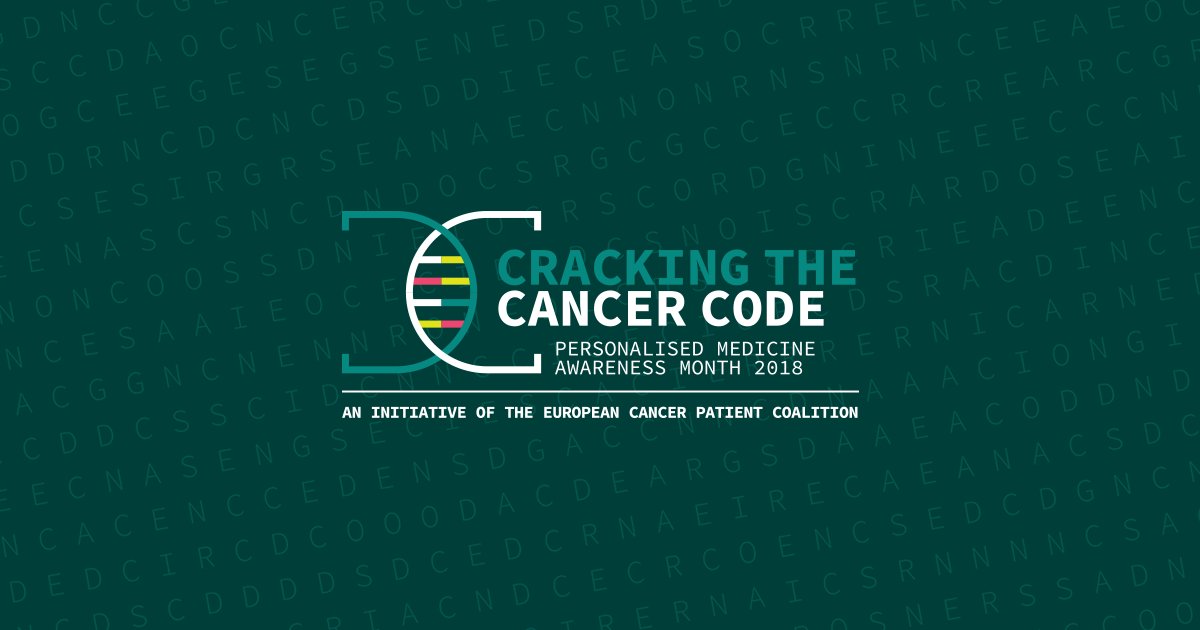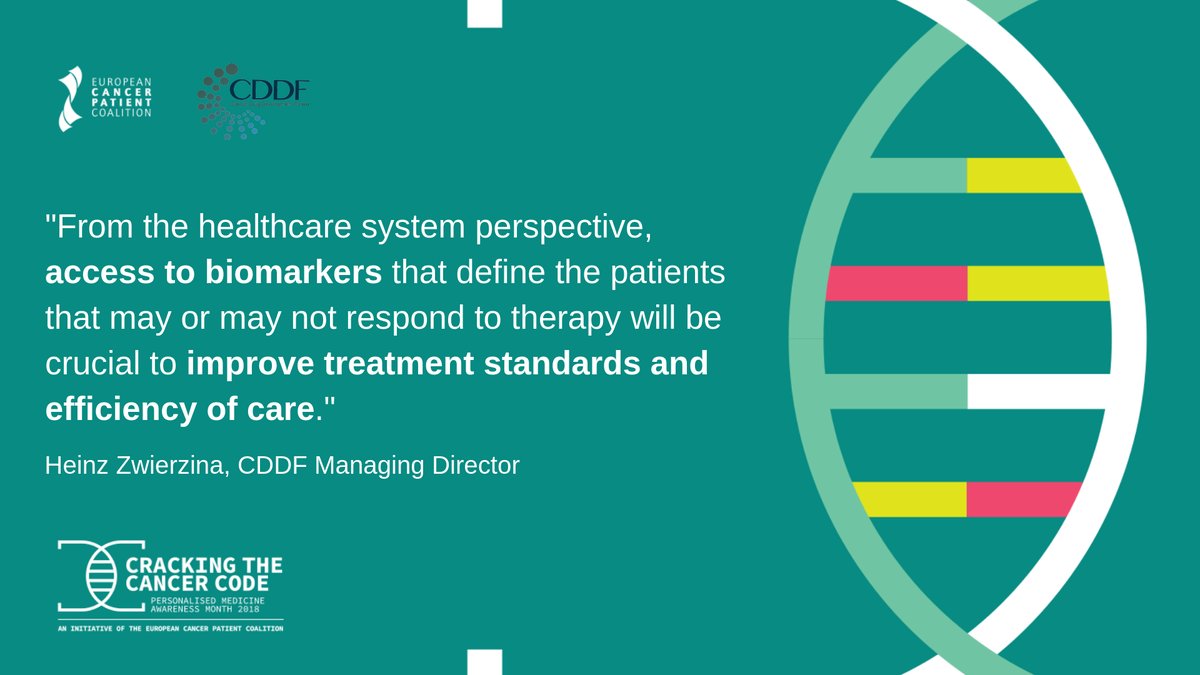
This month, The European Cancer Patient Coalition launched “Cracking the Cancer Code” – a new initiative to promote personalised medicine in cancer care. The campaign calls for greater access to molecular testing, to help patients get the right treatment for them.
Varying Access To Molecular Testing
Molecular testing – analysis of various cancer biomarkers – is already available for many types of cancer. However, its use in Europe varies by country, because in many countries diagnostic tests are not integrated into clinical practice and are not routinely reimbursed or available to all people with cancer.
Awareness about cancer molecular testing remains low – only 23% of European doctors feel that their patients are always fully informed about molecular or biomarker testing. The use of cancer molecular testing in Europe also varies by country, because in many countries diagnostic tests are not integrated into clinical practice and are not reimbursed or available to all people with cancer. This needs to change.
The National Institute for Health and Care Excellence (NICE), which provides national guidance and advice to improve health and social care, has an accelerated Medical Information Briefing (MiB) process that arose from the Accelerated Access Review in 2016, but tests are not financially mandated until incorporated into Clinical Guidance. NICE demands similar randomised controlled trials to demonstrate the efficacy of diagnostic tests as for drugs and this is often difficult to provide.
Recently Genome Web reported that “There is not enough evidence to recommend the routine adoption of EndoPredict, MammaPrint, Oncotype Dx Breast Recurrence Score, Prosigna, and IHC4+C to guide adjuvant chemotherapy decisions.” The resulting draft recommendation says that “In particular, more evidence is needed to prove that these tests have a positive effect on patient outcomes. Their cost-effectiveness compared with current practice is highly uncertain.”
It is an established fact that individuals have differing genomic profiles. That means personalised medicine will help identify the people who will benefit from specific effective cancer treatment and also to help avoid treatment-related toxicity.
What Is Personalised Medicine?
Personalised medicine, (also known as Precision Medicine) is defined by the NHS, as “a move away from a ‘one size fits all’ approach to the treatment and care of patients with a particular condition, to one which uses new approaches to better manage patients’ health and targets therapies to achieve the best outcomes in the management of a patient’s disease or predisposition to disease.”
Traditionally, cancer treatment has focused on the location of cancer in the body. Depending on the type of cancer, patients receive specific treatments such as chemotherapy, surgery, radiotherapy or immunotherapy. But not every person with cancer responds to these treatments in the same way. What works for one person may not work for another, and some patients may suffer serious side effects from treatment that is also ineffective.
Now, thanks to breakthrough technological advances, it is becoming possible to treat people with cancer based on ‘who’ they are, not just ‘where’ their cancer is located.
Potential Benefits of Molecular Testing
Cancer biomarkers are molecules that are usually produced by cancer cells, which can be detected in bodily tissues or fluids. They can identify people who have cancer or who are at risk of cancer, and help to select or predict those people who are likely to derive therapeutic benefit from specific treatments.
Improved treatment and quality of care means fewer side-effects and distress, as well as faster access for people with cancer to new treatment options – all of which improve quality of life. For healthcare systems at a national level, this translates to cost benefits through a more effective use of resources, fewer tests or lines of therapy and fewer hospital days for people with cancer.

Why Does Personalised Medicine Awareness Month Matter?
Each year, over 3 million people are diagnosed with cancer in Europe. We need governments to ensure the means to identify people who may benefit from more effective targeted cancer treatment, and avoid treatment-related toxicity where possible, all whilst helping to ensure the sustainability of our healthcare systems.
Too many people diagnosed with cancer do not have access to the personalised treatment they need and deserve. This can be due to a lack of awareness and education amongst patients and healthcare professionals, or a variety of access challenges such as pricing, reimbursement or limited availability. This needs to change. Molecular testing is the key to unlocking these treatments and now is the time for change.
As a company at the forefront of pioneering personalised cancer treatment, OCB stands with patients and caregivers across Europe, to call for:
- Increased access and decreased waiting times for high quality molecular testing to make personalised healthcare more of a reality across Europe;
- More information to educate and empower patients and caregivers around the potential and availability of molecular testing;
- A harmonised and more efficient regulatory framework across Europe which could increase access to, and potentially reduce the cost of, molecular testing.
We believe that people living with cancer should be informed about all available treatment options and be empowered to make the best decisions for their health, together with their healthcare team. This will help to promote better diagnosis, more targeted follow up and a truly personalised treatment for all.
Contact
Oxford Cancer Biomarkers Ltd
Tel: +44 1865 784743